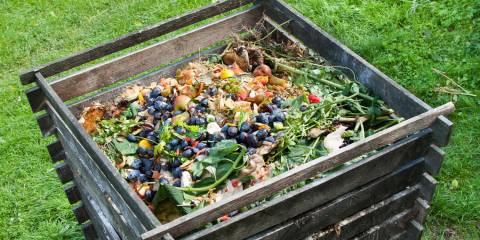Got fiber? If it’s a staple of your diet, then chances are your digestive tract is functioning well. But the benefits of fiber go far beyond keeping us regular. Fiber also contributes to heart health, lowered risk of diabetes, weight loss, and more. It’s no wonder it’s considered a key part of a healthy diet.
4 Bulk Benefits
-
Regularity and bowel health: Fiber helps with both constipation and diarrhea. It increases the weight and size of stools and softens them, making them easier to pass. It helps solidify watery stools by absorbing water. A diet high in fiber may also lower the risk of hemorrhoids and diverticular disease.
-
Cardiovascular boost: The fiber in beans, oats, and flaxseed may lower LDL, or bad cholesterol levels. Research has also shown that increased dietary fiber can reduce blood pressure and inflammation—all good news for your heart.
-
Blood sugar balance: Soluble fiber slows sugar absorption. That can mean improved blood sugar levels for people with diabetes, and a reduced chance of developing type 2 diabetes in others.
-
Weight-loss aid: Eating fiber-rich foods can keep you from overeating. Not only do they regulate blood sugar, helping prevent sugar crashes and the hunger that follows them, but they also make you feel full because they swell when they absorb liquid in your stomach.
Fiber facts
The parts of plants that your digestive system can’t break down or absorb—meaning they move relatively intact through your stomach, intestines, and out of your body—make up dietary fiber. There are two principal types: Insoluble fiber, which doesn’t dissolve in water, promotes the movement of food through the digestive system. Soluble fiber dissolves in water, forming a gel-like substance and helping lower cholesterol and glucose levels.
People need both types, and the best way to get fiber is through foods. If you struggle with constipation or irregular stools, you may need more insoluble fiber. It can be found in whole-wheat flour, wheat bran, nuts, and many vegetables. If you need help lowering your cholesterol, try upping your intake of soluble fiber such as oats, peas, beans, apples, citrus fruits, carrots, and barley.
How much fiber do you need?
If you’re 50 or under, the recommended daily amount is 38 grams for men and 25 grams for women. After age 50, the amount drops to 30 grams for men and 21 grams for women.
Up Your Fiber Intake
To find out the amount of fiber in any food, check out Prevention magazine’s Food Finder. If you’re not getting enough through foods, you can use supplements including flaxseed, chia seed, and Salba seed.
Try sprinkling the whole or ground seeds over cold cereal or on top of salads for a nice crunch. It can also be sprinkled on or mixed in soups, pizza sauce, pancakes, burritos, and yogurt.


